

Tao Te Ching
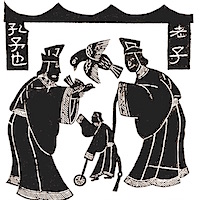
Eastern Zhou 東周 (770 – 256 BCE)
The Eastern Zhou dynasty lasted over 500 years and includes the reigns of more than 25 kings. It began when nomadic tribes, rebellious colonies, and the Quanrong overthrew the Western Zhou dynasty and the emperor’s son escaped, moved east, and established a new capital. It’s divided into two categories, the Spring—Autumn and the Warring States periods during which time the Zhou kings gradually lost more and more power until they were basically just figureheads. This period was one of the worst for Chinese people but probably the best for Chinese philosophy and influence on the world.
Sages (71)
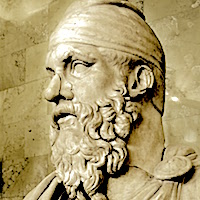
Abaris Hyperboreios βαρις Ὑπερβόρειος
595 – 595 BCE
Legendary sage, Mongol shaman, and catalyst for the beginning of Western Civilization
Abaris Hyperboreios, Skywalker βαρις Ὑπερβόρειος (c. 595 BCE)
Legendary sage, Mongol shaman, ancient ambassador of Eastern Wisdom to the West, “master of incantations,” and “Overcomer of Obstacles;” One of the earliest druids, Abaris became a famous and greatly respected sage in pre-Socratic Greece. Plato described him as a great physician who healed both body and mind, Herodotus depicted him as a magical arrow traveler, and anecdotes written by Pindar, Iamblichus, Pausanias, and Suidas characterized him as sorcerer, prophet, shamanistic missionary, purifier and bringer of balance to the earth. Peter Kingsley links him to the early formation of Tibetan civilization as well as being the soul-brother of Pythagoras, the spark that lifted the Greeks out of their primitive state, and the catalyst for the beginning and momentum of Western Civilization.
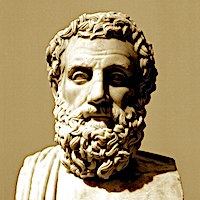
Aeschylus Αἰσχύλος
525 – 455 BCE
The Father of Tragedy
Although Aeschylus was the first to present plays as trilogies, the initiator of many theatrical innovations, and the “father of tragedy;” his Greek epitaph didn’t mention his plays, only his military roles. Although not fully acknowledged in ancient Greece, his influence has seeped through history and into the present as an inspiration for Wagner, Milton, the Romantics, Eugene O’Neill, and Robert F. Kennedy who claimed him as his favorite poet who he quoted in a speech to African Americans after Martin Luther King’s assassination. This same quote—“to tame the savageness of man and make gentle the life of this world”— became inscribed on Kennedy’s memorial after his own assassination. Aeschylus’ costumes and performances were so vivid that they were said to cause children to faint, men to urinate in their robes, and pregnant women to go into labo
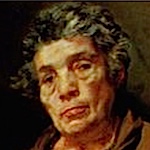
Aesop
620 – 546 BCE
Hero of the oppressed and downtrodden
Known as a strikingly ugly slave who by his cleverness became free and an adviser to kings and city-states, some historians believe Aesop was a black from Ethiopia and became Uncle Remus in the Cherokee, Algonquin and American slave tradition of Br'er Rabbit. In many cultures he symbolizes a hero of the oppressed, disadvantaged and downtrodden who with wisdom and understanding outsmarts and wins over the rich and powerful. Famous throughout the world - from China to Africa, from Europe to Japan, from ancient times until today; Aesop’s fables and sayings remain a profound influence of goodness and insight.
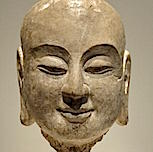
Ananda 阿難
5th C. BCE
"Guardian of the Dharma"
First cousin, close attendant and heart disciple of Gautama Buddha, 2nd Patriarch in the Zen lineage, known as “Guardian of the Dharma” because of his memory and recording of the sutras into the Pāli Canon during the First Buddhist council; Ananda is said to have been the most emotionally closest to the Buddha but the last of his close disciples to become enlightened. Known for his kindness, unselfish thoughtfulness, and service for others; he was responsible for including women in the monastic order and the Buddha’s public recognition of women being equal to men for which he was criticized after the Buddha died.
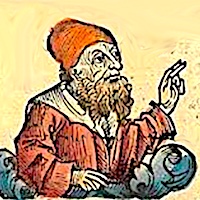
Anaxagoras Ἀναξαγόρας
510 – 428 BCE
“The Copernicus and Darwin of his age”
An heroic philosopher and scientist in a time with few scientific instruments but remarkable scientific discoveries, Anaxagoras introduced the concept of Cosmic Mind, correctly explained eclipses and why the moon shines, theorized about meteors, thunder, rainbows, the sun, and stars. He developed an insightful theory for the evolution of animal and human life and helped create the foundation for Greece’s most lasting scientific insight, the atomic understanding of matter. Immortalized in literature, he became a character in Goethe’s Faust and was quoted by Socrates, Plato, Seneca, Marcel Proust, and Gore Vidal. His genius was not always appreciated though. Dante placed him in Limbo (the First Circle of Hell) and he was sentenced to death because of teaching that the sun is a mass of fire instead of a god.
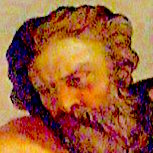
Antisthenes
445 – 365 BCE
Creator of a religious tradition without religion
Founder of the “Cynic” philosophy (named after the place he taught, Dogfish), student of Socrates and with him when he died, plagiarized by Plato, and teacher to Diogenes who made his teachings famous creating a “religious order without religion;” Antisthenes taught that the wise follow the sense and not the words, virtue instead of laws, insight instead of memes. Criticizing belief in universals, he questioned taking fame, fortune, pleasure and power as life priorities and modeled the value of a simple life in harmony with nature setting the stage for the early Christian ascetics. Dressing in the most common and worn clothes, he refused any pay for his teachings and preferred poor students.
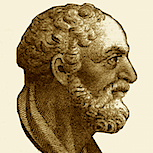
Arcesilaus Ἀρκεσίλαος
316 – 241 BCE
Founder of the Greek Middle Academy and the first to adopt Academic Skepticism doubting the ability of the senses to discover truth, Arcesilaus debated against the Stoic belief that reality can be known with certainty. He didn’t doubt that “truth” exists, only that it could be confined in concepts. This led to an emphasis on practical life like in the Zen tradition (“chop wood, carry water”) with a disregard for speculation, superstition, and belief systems; an emphasis on moderation; and an early appreciation and respect for a philosophy of doubt (though he was accused by Pascal of becoming a dogmatist in later life - a testament to the power of herd instinct and the desire to belong above creativity and openness).
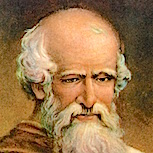
Archimedes (of Syracuse)
287 – 212 BCE
Considered the greatest mathematician of ancient times and one of the greatest of all times, Archimedes was also an inventor, astronomer, and engineer frequently called ”superhuman" by Galileo. Some of his inventions include the block-and-tackle pulley system, the odometer, a way to find the value of π, the measurement of a circle and a sphere, the making of a planetarium, and the system of exponents for expressing large numbers. His formulations for uses of the lever and balance remained without improvement until 1586 CE. Featured on postage stamps issued by Germany, Greece, Italy, Nicaragua, San Marino, and Spain; his exclamation “Eureka!” while running naked through the streets of Syracuse after discovering the principle of displacement is the state motto of California.
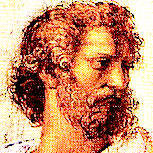
Aristotle Ἀριστοτέλης
382 – 322 BCE
Famous student of Plato and teacher of Alexander the Great, the first to organize a group to do scientific research, to systemize Western philosophy, to formalize a system of logic and to develop a theory of evolution; Aristotle is considered "The First Teacher" by Muslims and a profound influence on Judaism and Christian theology that extended through the Renaissance and continues today. Though only about one third of his writings remain and much more a proponent of the words rather than the sense, Cicero described him as "a river of gold,” Dante as “the master of those who know,” and through 1500 years of European history, “the philosopher.” He taught virtue as the secret of happiness, politics as the art of compromise between classes, and politically creating a balance between faith and reason, equality and freedom.

Ashoka
304 – 232 BCE
One of the world's most enlightened leaders
One of India’s greatest emperors, after witnessing the immense bloodshed during a war Ashoka became the first Buddhist leader and sent teachers as far away as Egypt, Greece, Nepal, China, Thailand and Viet Nam. He brought about a golden age for India, renounced violence and religious intolerance, built 84,000 monasteries, hospitals for people and animals, championed the environment, human rights and gender equality. He was the first ruler in human history to ban slavery, the death penalty, animal cruelty, and deforestation. H.G. Wells wrote that his reign, “was one of the brightest interludes in the troubled history of mankind.”

Aspasia
470 – 400 BCE
A female Socrates and dramatic influence on Western culture
An hetaera, a highest class courtesan who – unlike most women of the time - was highly educated, independent, and able to participate in public life, Aspasia became Pericles’ mistress and a dramatic influence on Greek politics, philosophy and culture. Her home was an intellectual greenhouse attracting the greatest thinkers of the era and her teachings influenced Socrates, Plato, Xenohon, and many more. Intelligent, beautiful, charming, and called a "female Socrates;” she taught realization through self-knowledge and although a prostitute, her advise was so respected influential Athenians brought their wives to hear her.

Buddha गौतम बुद्ध (Siddhartha Shakyamuni Gautama)
563 – 483 BCE
Awakened Truth
While living at about the same time as Lao Tzu, the Buddha was more of a traditional teacher. His teachings, often called Buddha Dharma (“Awakened Truth”) extend and adapt to people in all walks of life: monks, householders, wandering yogis, kings and secular leaders of all kinds. Born into luxury and privilege, Siddhartha realized the meaninglessness of pleasure-seeking, fame, fortune, power and set off on a spiritual quest leading him to the deepest realization and insight. He cautioned against belief systems, herd instinct, and uncritically following leaders, philosophies, and religions.
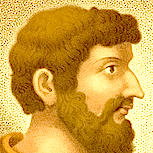
Callimachus Καλλίμαχος
310 – 240 BCE
Apostle of creativity and individuality, Callimachus suggested we "abhor all common things.” Descended from the first Greek Royal family that reigned in Africa, he was one of the first critic-poets and led the trend of rejecting the Homeric epic style in favor of epigrams and short poems. A major influence on Ovid and Latin poetry in general, he invented for libraries what may have been the first bibliographical survey that listed, categorized, and identified where literary works could be found. Teacher to Eratosthenes, he wrote one of the earliest love stories in all literature with a theme since retold by millions of poets and novelists.
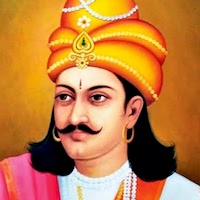
Chandragupta Maurya
340 – 297 BCE
Ashoka’s grandfather, founder of the Maurya Empire
Born poor, orphaned, and abandoned; Chandragupta became founder of the Maurya Empire, a major change agent for Indian history, and builder of one of the subcontinent’s largest empires. After reaching the heights of power, fame, and wealth; he renounced everything and became a Jain monk. He unified India after Alexander the Great left a legacy of multiple territories ruled by Indo-Greek rulers; and, Ashoka’s grandfather, he began many of the economic and political reforms Ashoka later expanded and perfected. Under his rule, trade and agriculture flourished, infrastructure like roads, mines, and irrigation expanded, the economy grew very strong, and numerous religions spread. His renown continues into modern times through books, plays, television, movies, and even an Indian Postal Service stamp.
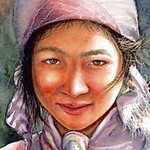
Chang-shih
4th century CE
Though little known by history, Mencius’ mother Chang-shih became an exemplar in Chinese culture for good parenting and is immortalized in an idiom know by almost all Chinese speakers. A wise and dedicated single mother, she moved her home 3 times searching for the best educational environment for her son – once because he was being too influence by funeral rites, once because the influence was business, and finally settling near a good school. Her wisdom continued during Mencius’ later life once famously changing his attitude from blaming and planning to divorce his wife to accepting the blame himself.
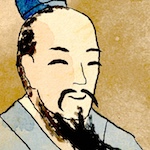
Chuang Tzu 莊周 (Zhuangzi)
369 – 286 BCE
In a very real way, all of Chuang Tzu’s writings are a commentary on the Tao Te Ching. And by far, the best. Many consider him to be like Plato was to Socrates, like Paul was to Jesus, like Mencius was to Confucius, like Ashoka was to the Buddha… responsible for spreading the message of their teacher to the bigger world. Ridiculing rigid Confucian principles, he champions the sense instead of the words, the non-thought lineage, and true wisdom in daily life. His teachings emphasizing the interdependence of all things both inspire and foreshadow our modern ecological perspective.

Cincinnatus
c. 519–430 BCE
Proof that power doesn't always corrupt
Roman politician, military leader legendary for his virtue, and dictator who twice voluntarily gave up all power; Cincinnatus left working his small farm when asked by his country to help during an invasion. An inspiration for generations of Romans and leaders all over the world including George Washington; he took complete control, won a great victory; and then, returning to his farm. relinquished his absolute power. Honored through the ages as example of just leadership and selfless service, his name graces many organizations, streets, plazas and cities including the USA’s Cincinnati.
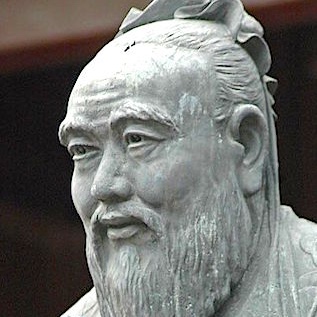
Confucius 孔丘 (Kongzi, Kǒng Zǐ)
551 – 479 BCE
History's most influential "failure"
Probably the most influential failure in history, Confucius wanted to be a political advisor, found only one job doing that but unsuccessfully as was the rest of his life attempts at being an administrator. Early Confucian scholars were killed and their books burned. After he died though, his teaching shaped the next 2300 years of Chinese educational, governmental, and cultural practice. He was the first in recorded history to set up an educational program to train people for governmental roles. Calling himself a "transmitter who invented nothing,” his tradition did not become a religion but instead a non-theistic, humanistic understanding of secular morality that stressed having rulers appointed based on merit rather than birth, rule by personal example rather than fiat, acting out of awareness and experience rather than only following rules.
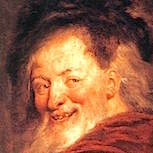
Democritus Dēmókritos
460 – 370 BCE
Father of modern science and greatest of ancient philosophers
The "father of modern science,” famed for his atomic theory of the universe, mathematics and geometry pioneer, called by Francis Bacon “the greatest of ancient philosophers;” the famously cheerful Democritus was born into a very rich family but spent almost all his money becoming in his era the most widely traveled going as far as Ethiopia, Persia, and India where he is said to have been exposed to and influenced by Buddhism. Returning without wealth, he devoted himself to a simple life of philosophy, science, music and art creating an influence still with us today.

Demosthenes Δημοσθένης
384 – 322 BCE
Orphaned at the age of seven, called “blazing thunderbolt,“ read more than any other ancient orator, and one of the 10 greatest ancient Greek speakers; Cicero said Demosthenes was “the perfect orator” who “stands alone among all.” Self-taught by studying famous speeches and overcoming a serious speech problem by speaking to the sea with pebbles in his mouth; he used his prodigious skills to influence political sentiment attempting to keep Athens free and independent. His group of paid orators were considered one of the least respected professions and presaged the lawyers and professional politicians of our time. He sometimes prepared arguments for both sides in a case and became rich supporting unethical positions he didn’t believe in but wound up suffering and dying for views he was paid to defend. Though exemplifying both the best and worst of the legal profession he helped spawn, he inspired The Federalist Papers, the French Revolution orators, Henry Clay, and Friedrich Nietzsche.
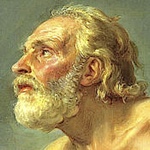
Diogenes (of Sinope)
412 – 323 BCE
Exiled from his place of birth, Diogenes lived as a citizen of the world begging for food and sleeping in a big ceramic jar. Carrying a lamp during the day “looking for an honest man,” he publicly ridiculed Alexander the Great, sabotaged and embarrassed Plato, and was sold into slavery after being captured by pirates. He developed Cynicism and teachings that became Stoicism, one of the most influential philosophies of Greek culture. He criticized the artificialities of society and advocated simplicity and a return to nature. Referencing him in their works, he inspired many great literary figures including Chekhov, Blake, Goethe, Dostoevsky, Cervantes, Charlotte Brontë and Charles Dickens. Called by Plato ”Socrates gone mad,” his poetic spirit and lifestyle continued through the ages, manifested in modern times by people like Charles Bukowski, and embodied in stories like Jack Kerouac’s On the Road.
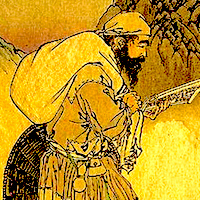
Duanmu Ci 端木赐 (Tzu Kung, Zigong)
520 – 456 BCE
Confucius’ most important disciple
Third of the Twelve Confucian Wise Ones, successful and wealthy businessman, diplomat, and most important of Confucius’ disciples; Duanmu Ci became one of the most accomplished Confucian speakers and the one most mention in the Analects. His accomplishments however led to an arrogance that Confucius criticized along with his lack of empathy and harshness. When he claimed achieving the Confucian ideal, the Master dismissed him from his posts. Confucius later gave him the task of saving their state of Lu from the more powerful army of Qi that was preparing to attack and take over. His strategy and diplomacy saved Lu, significantly change the history of 5 states, and much of that time’s Chinese history. His memorial tablet is traditionally placed on the east side of Confucian temples.
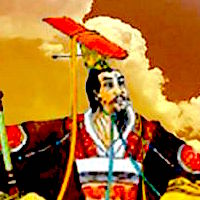
Duke Wen of Jin 晉文公; (Jìn Wén Gōng, Chong'er)
697 – 628 BCE
Innovative political reformer
A ruler during the Spring and Autumn period of ancient China who, after a 19-year period of exile declined the throne and passed it on to his half-brother; Duke Wen’s civil and military reforms created a highly successful, expanding, and stable government that lasted long beyond his life. According to Confucius, he was “crafty but not correct while Duke Huan was correct but not crafty.”
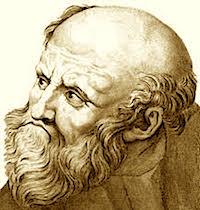
Empedocles
490 – 430 BCE
"The father of rhetoric"—Aristotle
Empedocles Ἐμπεδοκλῆς (490 – 430 BCE)
Brilliant orator, physician, poet, vegetarian, magician, pre-Socratic Greek philosopher, and called by Aristotle the father of rhetoric; Empedocles, according to Kingsley, “brought the germs of a new civilization into existence” and became a foundational researcher who set the stage for Euclid and the other early scientists. Also a highly successful politician who helped over through tyrannical and oligarchic governments but then declined offered sovereignty, he was the last Greek philosopher to write in verse. First in the west to describe the four classical elements, he taught the first comprehensive theory of light and vision, anticipated Darwin's theory of natural selection, and believed that all living things reincarnate between humans, animals and plants. Said by Pliny to have traveled to the east and studied with the Magi, Empedocles explained how limited and narrow our perceptions remain while our concepts fool us into believing we understand the whole, how we believe the words without insight into the sense.
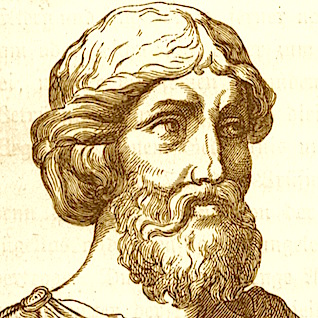
Epicurus ɛpɪˈkjɔːrəs
341 – 270 BCE
Western Buddha
Author of 300 lost books, a huge influence on western philosophy through Schopenhauer, Nietzsche, Karl Marx, David Hume, and inspiration for Thomas Jefferson’s “all men are created equal and endowed with certain unalienable rights, such as life, liberty, and the pursuit of happiness;” Epicurus blended the wisdom of pleasure with the pleasure of wisdom (Durant) and fostered equality and freedom welcoming into his school without prejudice slaves, different races, women, and courtesans. “Unsurpassably kind” to everyone, with many parallels to Lao Tzu, Epicurus taught that the purpose of philosophy is to free us from fear and suffering, to guide us to happiness.
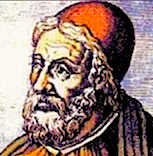
Eratosthenes ρατοσθένης (of Cyrene)
276 – 195 BCE
Chief librarian of Alexandria, student of the best teachers of his age: the Stoic founder Zeno, the first serious academic Stoic Arcesilaus, the famous poet Calimachus, and grammarian Lysanias; Eratosthenes invented geography (his terms still used today), made the first Western map of the world including parallels and meridians, calculated the circumference of the Earth and the tilt of its axis for the first time, invented leap day, accurately measured the distance from the Sun to the Earth, and founded “scientific chronology.” The first geographer to mention the Chinese, he criticized the Greek chauvinism of describing foreigners as barbarians and recommended judging people as individuals instead of as members of religious, cultural, or national groups.
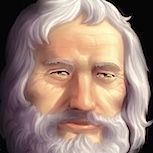
Euripides
480 – 406 BCE
Ancient humanitarian influence continuing today
Radical influence for the good, for equality, compassion, and understanding; Euripides became the best playwright of all time actively fighting against oppression, inequality, superstition, and war. He depicted the gods of his time as childish fantasies, women as the best civilizing force for men, ancient heroes as ordinary people, and sympathy as the best attitude toward all victims of war and social inequalities. Frequently shocking the status quo, he became the foundation for ancient education and the greatest ancient intellectual Greek inspiration, a force that continued through history, inspired the 18th and 19th century humanitarianism, and continues today.

Hán Fēi 韓非
280 – 233 BCE
Though something like a Chinese Machiavelli and somewhat biased toward a “Legalist” point of view, Han Fei wrote the first commentary on the Tao Te Ching. His political philosophy helped China’s first emperor, Qin Shi Huang gain power and although he was killed by Qin political intrigues and vilified after the fall of the Qin Dynasty, he became an immense influence on every Chinese dynasty including the present. A collection of aphorisms and political principles, his philosophy teaches rulers how to avoid corruption and nepotism, improve laws, and beneficially guide public opinion.
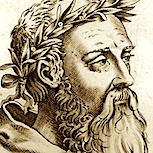
Heraclitus Ἡράκλειτος (of Ephesus, the "Weeping Philosopher")
535 – 475 BCE
A Greek Buddha
Lonely, self-taught wisdom pioneer who like the Buddha abdicated his inherited kingship; Heraclitus also like the Buddha stressed the ever-present quality of impermanence and change, the importance of humans waking up from unconsciousness, and the unity of opposites. Devoted to the principle of inscrutability, he was known as "the Obscure" and wrote only for the wise and not “the rabble.” Born just 28 years after the Buddha, he emphasized the central Buddhist doctrine of impermanence and is famous for his quote, "No man ever steps in the same river twice.” Also contemporary with Lao Tzu, he mirrored the teaching of yin and yang regarding the soul as being a mixture of fire and water, light and dark.
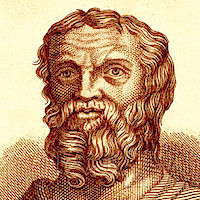
Herodotus Ἡρόδοτος
c. 484 - 425 BCE
“The Father of History”
“The Father of History” and first known historian to systematically collect and investigate facts, Herodotus described the purpose of his efforts “to prevent the traces of human events from being erased by time, and to preserve the fame of the important and remarkable achievements.” While the accuracy of his accounts is often questioned, he worked hard to corroborate his stories. From an internationally-minded port city and widely traveled, he describes many of his accounts from an eye-witness perspective. With an overarching theme of civilizations in conflict, he collected oral histories during his travels, thought about their meanings and interpreted them. Not only reporting on ancient science, he also speculated on scientific, cultural, geographical, and historical questions. His role in bringing ancient wisdom into modern understanding is immense.
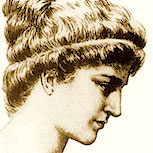
Hipparchia ππαρχία (of Maroneia)
350 – 280 BCE
Cynic philosopher and the only women on Diogenes Laërtius' list of eminent philosophers, Hipparchia influenced Zeno's views on love and sex, on the founding of Stoicism. She fell in love with her teacher, the most famous Cynic of the time, Crates; and going against her parents, married him to live a street-life of poverty. Going far beyond what was considered acceptable for women, she wore men’s clothes and living on equal terms with her husband became a symbol for rejecting conventional values and thinking for yourself. Rejecting the conventional roles for women in favor of philosophy, she left her rich family, became a beggar, consummated her relationship with Crates in public, and with him epitomized unwavering fidelity and deep affection.
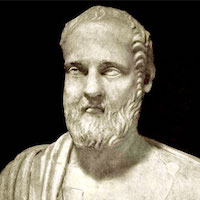
Isocrates Ἰσοκράτης
436 – 338 BCE
Greece’s most famous orator, rhetoric and philosophy school founder, teacher of kings and other teachers; Isocrates promoted a vision of all the Greek city-states being part of one common nation. This established a foundation for the Panhellenic union, the defeat of Persia, Alexander’s unification and conquests. Cicero compared the school he founded to a Trojan Horse because the ideals it promoted were so able to subtly and effectively infiltrate the culture and politics of the times. Historians attribute much of the famous integrity, honesty, and truthfulness of ancient Athens to Isocrates. A strong voice for peace, he stressed how peace doesn’t create more pain and suffering for populations while war creates so many disasters. Criticized by Plato but praised by Socrates, Isocrates became an important influence on establishing liberal arts education.
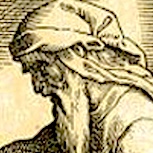
Koheleth
c. 330–180 BCE
Author of the most mystical, the most in harmony with the non-thought lineage part of the Bible, Koheleth anonymously wrote Ecclesiastes, part of the Hebrew Bible as well as one of the “canonical Wisdom Books” recognized by most Christian denominations. It focuses on the meaning of life, the best way to live, the futility of materialism and wisdom as the highest value. Thomas Wolfe called it “the noblest, the wisest, and the most powerful expression of man's life upon this earth—and also the highest flower of poetry, eloquence, and truth.” Koheleth himself remained anonymous and obscure, not taking credit for this great work.
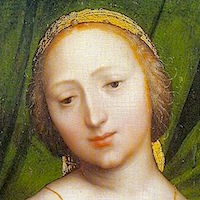
Lais of Corinth
fl. 425 BCE
Described by Athenaeus as “superior in beauty to any woman that had ever been seen,” Lais typifies the Greek penchant for blending philosophy with prostitution. Although so desirable would-be clients would offer her all their wealth and possessions for a single night; she was so wealthy she would often refuse the most lavish offers. Her love of philosophy led her to offer herself to philosophers like Diogenes for a wee bit and gave the ugly Demosthenes great honor and fame by offering him 10,000 drachmas for an evening. She used her great wealth for the common good helping worthy people and building public structures and temples. Honored with a great tomb when she died, Lacroix described her as “the greatest conqueror that the Greeks have ever known.”

Lao Tzu 老子 (Lǎozǐ)
604 BCE -
The poems translated here say more about Lao Tzu than could any commentary on his life. A huge influence on all of Chinese culture, much of Chinese literature and almost all of Chinese art, Lao Tzu’s teachings also extend to every aspect of life including politics to such an extent that he was claimed as an ancestor by the emperors of the Tang dynasty. Some call Zen “Taoism in Buddhist clothing” and these teachings continue to inspire people in all of the non-thought lineages. As Ursula Le Guin comments, “Of all the deep springs, this is the purest water.”
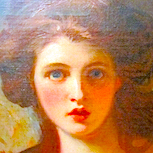
Leontium Λεόντιον (Leontion)
fl. 300 BCE
Philosopher, courtesan and mistress to Epicurus; Leontium had a child with him, helped develop his Epicurean philosophy, and wrote several books. Praised by Epicurus for the clarity of her philosophy and writings, she encouraged his policy of letting women and slaves attend his classes, and was a scandal to philosophers like Leontium and Pliny for - as a woman and prostitute - writing an erudite and devastating criticism of famous philosophers like Theophrastus. Barely mentioned in history and mainly by Epicurean critics who blamed her for her influence on ideas they disagreed with, Leontium helped create a more open and happy world.
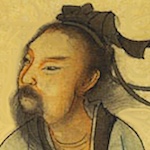
Lie Yukou 列圄寇/列禦寇/列子 (Liè Yǔkòu, Liezi)
4th C. BCE
Known for “riding the wind,” Lie Yukou was a Taoist sage who wrote the Liezi which is considered to make up a trilogy with the Tao Te Ching on the poetic side, Zhuangzi as the philosophical and the Liezi as the most practical. Often quoted by Zhuangzi, he had a large number of disciples and wandered widely advising kings and rulers. He emphasized using the pattern and rhythm of nature as a guide for human conduct, going beyond philosophical boundaries, and - as a precursor to Epictetus - a deep acceptance of perception and circumstance.
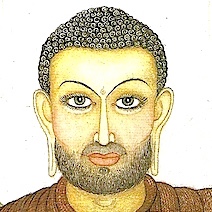
Mahākāśyapa 摩訶迦葉
5th C BCE
One of the Buddha’s principal disciples, Mahākāśyapa convened and directed the First Buddhist council and was the only one said to have understood the “Flower Sutra” - a teaching the Buddha gave by holding up a white flower and not using any words. Zen Buddhism traces its origin to this deep example of understanding the sense, not just the words. All true wisdom traditions seem to share this concentration on meditative direct experience rather than philosophy, rational creeds, or revealed scripture.
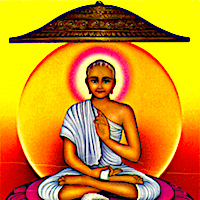
Mahavira (Vardhamāna)
540 – 468 BCE
"the great hero”
Reviver of the Jain tradition, 24th tirthankara, contemporary of the Buddha, and—like the Buddha—Mahavira left the wealth and power of his royal family to go on a spiritual quest. After 12 years of intense and ascetic meditation, he realized enlightenment and began a 30-year period of teaching. These teachings became some of the most important foundations of Jainism. The two major Jain sects differ in their understanding of Parshvanatha and Mahavira’s teachings. One believes their is no difference, the other that Mahavira expanded the scope of non-violence and began requiring monastic celibacy. HIs death and nirvana have become one of India’s most important holidays, the Diwali festival of lights.

Maitreyi
c. 7th century BCE
Symbol of enlightened feminine principle
A symbol for Indian intellectual women, "one of the most learned and virtuous women of ancient India,” poet, philosopher, and wife of the great sage, Yājñavalkya; Maitreyi studied, debated, taught metaphysics and wrote 10 hymns in the Rigveda, one of the four Hindu canonical sacred texts. Her dialog with Yājñavalkya in an Upanishad formed the foundation for Advaita, the oldest school of Vedanta that teaches and gives practices to help realize non-duality. In this dialog, her challenge to the male guru shows the equality of women in ancient India and inspires that realization today - a college in New Delhi is named after her.
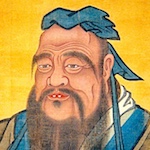
Mencius 孟子 (Mengzi)
372 – 289 BCE
Itinerant sage, most famous Confucian and more influential than Confucius himself; Zhu Xi included Mencius as one of the Four Books used as the Chinese official curriculum for over 700 years until the fall of the Qing dynasty in 1912. He emphasized the innate goodness of each person and attributed corruption and crime to bad leadership and social values. He promoted education based on understanding instead of memorization and like Socrates taught that people have the right and even mandate to overthrow a harsh ruler who disregards the people’s needs.
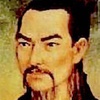
Mozi 墨子 (Mòzǐ)
470 – 391 BCE
Chinese personification of Newton, da Vinci, and Jesus
Carpenter, precursor to Newton in science, to da Vinci with inventions, to Jesus and Christianity in religion, a politician so provocative emperors burned his books and followers; Mozi taught authenticity and personal insight over dogma and obedience, "universal love,” and the "Golden Rule.” A selfless worker for the good of the others without concern for personal gain, he described inherent basic goodness, benevolence as practical and natural, adversity as beneficial, and government based on talent and merit rather than background and family. Traveling from crisis to crisis in the war-ravaged China of his time, he stopped wars and prevented battles.

Orpheus /ˈɔːrfiəs
7th century BCE
"Greatest poet and musician of all time"
Accepted by most ancient sources as a real person but also shrouded in myth and legend, Greeks venerated Orpheus as the greatest poet and musician of all time believing his music could charm animals, divert rivers, and even make rocks and trees dance. As prophet, musical archetype, and founder of the Orphic mysteries; his influence on art, poetry, film, opera, music, and painting continues into modern times. As well as influencing Stoic pantheism and the Neo-Platonists’ asceticism; he continued a mystic cult migrated from Egyptian Osiris that included the suffering, death, and resurrection of a divine son; judgments at death of heaven, hell, or purgatory; “original sin,” and a communion sacrament of eating a god’s body and blood; it became a basis for the Christianity flourishing today.
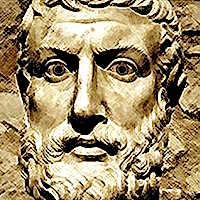
Parmenides
540 – 450 BCE
Grandfather of Western philosophy
Parmenides of Elea Παρμενίδης ὁ Ἐλεάτης (c. 540 - 450 BCE)
Father of Western logic, grandfather of Western philosophy, major influence on the development of science, promoter of the most paradoxical (contrary to appearances) vision of reality, and venerated by Plato and Aristotle; Parmenides taught that our experiences of “reality” are illusory, that the profound oneness of life makes change impossible, existence timeless, and that nothing either dies or is born. In The Way of Opinion, he explains the world of appearances, in which one's sensory faculties lead to conceptions which are false and deceitful. In The Way of Truth, he describes a mystical experience of absolute, unborn reality. These categories parallel our theme of “the words or the sense.”

Pericles
495 – 429 BCE
Disprover that all power corrupts
One of the greatest statesman and leaders in all of history, Pericles disproves or is at least an exception to the adage “power corrupts.” Though not without critics (including Plato); as general, politician untainted by corruption, orator and philosopher, he helped establish a Greek golden age, increased the power of democracy, and made Athens famous as the educational and cultural center of the ancient world. He also started projects that built most of the surviving structures on the Acropolis including the Parthenon.
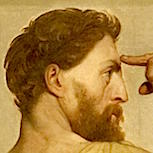
Phidias
480 – 432 BCE
Greatest Greek Sculptor
Greatest Greek sculptor, fashioner of the 43’ Statue of Zeus at Olympia (one of the Seven Wonders of the Ancient World), and close friend to Pericles; history credits Phidias with the development and design of Classical Greek sculpture. He supervised and helped create the great works on the Acropolis in Athens, designed the statues of Athena inside the Parthenon that had 2345 lbs of gold on just the robe, and a colossal bronze Athena Promachos, symbol for Athens and goddess of wisdom. His work was described as “the most beautiful images on earth,” all who could afford it made pilgrimages to it, and hundreds of years later a Roman author described his work as an addition to religion “equal to a god.”
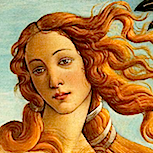
Phryne
371 - c.310 BCE
Model for the most famous sculptor of the time, Praxiteles and the first life-size statue of the nude female form; Phryne’s habit of letting down her hair and swimming naked in the sea during Elusion festivals inspired Apelles’ famous painting of Aphrodite as well as Botticelli's famous Birth of Venus. Her success as a hetaira courtesan made her so rich she was said to offer funding to rebuild the walls of Thebes destroyed by Alexander the Great if the words "Destroyed by Alexander, restored by Phryne the courtesan" were inscribed on them. Apparently too much to ask, this led to a charge of “impiety” at a trial where she was vindicated and found not guilty after baring her breasts.
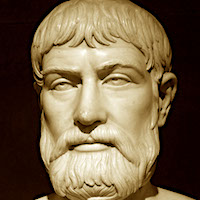
Pindar Πίνδαρος
522 – 443 BCE
Archetype of poetry
One of the always-praised but almost never-read writers, Pindar wasn’t even popular during his lifetime though he was sought out and paid high sums for eulogies. Although only a small fragment of his odes remain and none of his music and dance displays; enough of the creative artistry and complex, beautiful structures survive to give Pindar an immortal place in world literature. He became popular again during the Byzantine Era and again when his style was emulated for the revived 1896 Olympic Games, the Athens Olympics in 2004, and the London Olympics in 2012. Horace thought anyone trying to imitate Pindar would be like Icarus, sure to fail. The splendor of his imagery, imagination, and style have brought some modern scholars to regard his work as “an archetype of poetry.”
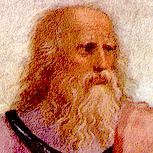
Plato Πλάτων
428 – 348 BCE
Founder of the Western world’s first and longest-lived university, one of the most influential philosophers in all history; Plato used the influence of his teacher Socrates, the skill of his student Aristotle, and his own personal genius to establish the foundation of Western science. Founder of process philosophy, Alfred North Whitehead described all of European philosophy as “footnotes to Plato.” Nietzsche described Christianity as "Platonism for the people" and Christianity is indeed infused with Platonic thought that also profoundly influenced Saint Augustine, one of the most respected Christian philosophers. Platonic thought has continually revived through the ages dominating the Middle Ages, inspiring th Renaissance, and continues as a profound influence today.

Protagoras
490 – 420 BCE
“The wisest man alive”—Socrates
Born poor and laboring as a porter, Protagoras was called by Socrates “the wisest man alive” and became a friend of Pericles, so respected that Plato wrote a book about him, and a philosopher so original that he started a thought revolution in ancient Greece with his theory of relativism. This led to an agnosticism that furthered science but aroused enough anger to expel him from Athens and have all copies of his books burned in the marketplace. His still famous statement that "Man is the measure of all things” continues his influence and his saying, “There are two sides to every question” has become a truism and idiom in most languages.
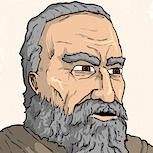
Pyrrho
360 – 270 BCE
Father of the skeptic school of philosophy, painter influenced by Democritus into philosophy, and venerated high priest of Elis; Pyrrho travelled with Alexander the Great to India, met Magi and Eastern wise men who inspired his philosophy and lifestyle. Learning some Buddhism, he brought the Three marks of Existence teachings (suffering, impermanence, and egolessness) into the West and taught that for every statement, it’s opposite can be proposed with equal justification. A huge influence on the modern skepticism of Descartes, he was so respected and appreciated in his own time that philosophers were made exempt from taxation.
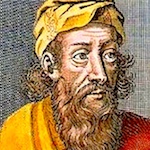
Pythagorus (of Samos)
570 – 495 BCE
"The most influential philosopher of all time"
The ancient Greeks called Pythagoras “the philosopher.” He discovered the numerical relationship between musical notes, the “music of the spheres,” gave geometry its main form, the Pythagorean theorem, and the name cosmos to the world. An elemental influence on Plato (The Republic considered based on the vegetarian, communistic community Pythagoras established) and the first to teach that the world is round and revolves around the sun, his influence extends to all of Western philosophy, Freemasonry, Rosicrucianism, mathematics, architecture, sculpture, art and music. Bertrand Russell considered him the most influential philosopher of all time.
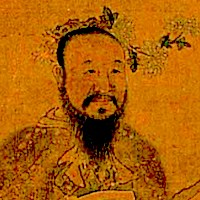
Qu Yuan 屈原 (Qū Yuán)
340 – 278 BCE
"King of the Water Immortals"
Patriotic poet, politician, Chu royal clan official, and inspiration for China's Dragon Boat Festival; Qu Yuan wrote at least some of the Chu Ci (Songs of the South) poems—one of China's two most famous ancient collections. Slandered and exiled by corrupt officials while helping King Huai, the same thing happened while advising King Qingxiang causing him to spend his time collecting folk tales and legends while writing some of China's greatest poetry. In a deep depression from his exiles as well as the Qin State's conquering of his country's capital, he committed suicide as a way of protecting his integrity. Mao tried to replace Confucius with Qu Yuan as a cultural hero.

Sappho
612 – 570 BCE
“The Poetess” and most famous Greek woman
The most beautiful singer of her age, a political force when only 19, one of the great “Nine Lyric Poets” of ancient Greece, called by Socrates, “The Beautiful,” by Plato the Tenth Muse, and “the Poetess” by all the Greek world; Sappho is the most famous Greek woman. In fear of her pen, politicians banished her twice and her poetry continued to inflame autocratic leaders for centuries – even Medieval Church leaders in Rome and Constantinople tried to burn all her 9 volumes of poetry in 1073 and remaining scraps of these weren’t found until 1897, some not until 2014. She started history’s first “finishing school” for girls and lived “laughing love’s low laughter… lost in the love trance."
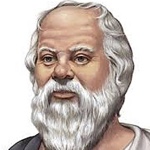
Socrates
469 – 399 BCE
One of the most powerful influences on Western Civilization
A founder of Western philosophy, Socrates’ immense influence, methods and insight challenged conventions and encouraged a simple way of life. His lineage continued through Plato, Aristotle, Alexander the Great and some of his other students began important schools of philosophy like Cynicism and Stoicism. Famous for developing the Socratic Method still used today and which could be considered a way of moving from understanding the words to understanding the sense; Socrates became a profound influence on the Roman empire, medieval Europe, the Islamic and Judaic Middle East, the Renaissance and the Age of Reason in Europe. Through more modern philosophers like Locke, Hobbes, and Voltaire; Socrates stays with us today.
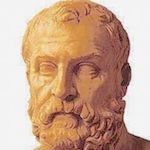
Solon
638 – 558 BCE
Founder of Athenian democracy
Poet, statesman, lawmaker, one of the Seven Sages of Greece and known for establishing the foundations of Athenian democracy; Solon wrote poetry and helped stop the decline in ancient Athens. At that time, not being able to repay a debt meant slavery - first of your children, then your wife, and finally yourself. As much as 92% of all Athenians were slaves. A skilled compromise negotiator, and respected for his wisdom and fairness, Solon was given power to change this. Establishing publicly funded brothels "democratize" the availability of sexual pleasure, he cancelled debts and contracts, freed slaves, and ended the causal system. This along with his beneficial trade legislation and standards resulted in an economic revival, a new golden age, and the beginning of democracy.
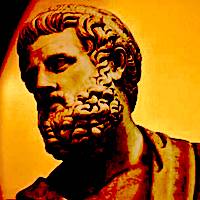
Sophocles Σοφοκλῆς
497 – 405 BCE
“The Wise and Honored One”
Author of 120 plays, known as “The Wise and Honored One,” most popular Athenian playwright for 50 years, champion wrestler, poet, musician, actor, politician, general, and priest; Sophocles initiated pioneering innovation in the presentation of drama including an emphasis on inner, psychological character development. Strikingly handsome, athletic, enriched and privileged by his family’s wealth from selling weapons during the Persian wars; Sophocles ironically developed a dark pessimistic fatalism. He ranked the unborn as the most blessed and those who die at birth next. His play, Oedipus Tyrannus became the most famous of all Greek dramas. Brought to court by a son fearful that he would bequeath his wealth to an illegitimate son from a prostitute, Sophocles defended himself by reading from a play. This not only won the case but garnered the honor of the judges escorting him home.

Sun Tzu 孙武 (Sun Zi)
544 – 496 BCE
HIstory's supreme strategist
A huge influence in China from the first emperor, Qin's Shi Huangdi who considered Sun Tau’ strategy invaluable in his success to Mao Zedong who partially credited to him his 1949 victory over Chiang Kai-shek; Sun Tau also became influential in the West during the twentieth century. It helped leaders unify Japan, generals in Viet Nam win over superior French and American forces, Colin Powell win the Gulf War and continues to help people all over the world involved in politics, the military, business, sports and any competitive endeavor. Sun Tzu uses Daoist principles and terms emphasizing victory over aggression, taking whole, how to be rather than what to do.
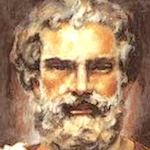
Thales of Miletus
624 – c. 546 BCE
“Father of Philosophy”
One of the “Seven Sages of Greece,” called the founder of Western Science and “Father of Philosophy,” Thales traveled to Egypt and studied with an Egyptian priest. He then returned to become ”the first Greek mathematician,” history’s first to use geometric deductive reasoning, to have a mathematical discovery attributed, and becoming the first to explain nature without myth or superstition, he set the direction for the golden age of Greek philosophy. Wanting to prove the practicality of philosophy and science, he applied it to business creating the first instance of using options and futures and to politics stopping a battle by predicting an eclipse.
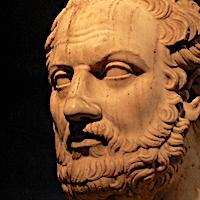
Thucydides Θουκυδίδης
460 – 400 BCE
"Father of realpolitik"
General, Athenian historian, and "father of "scientific history;" Thucydides wrote one of the world's most influential books, History of the Peloponnesian War. The United States Founding Fathers—ironically because he hated democracy—used him as a guide for their proposed decision making process. Still studied in military colleges and universities, his theories, analysis of historical events and international relations help explain the cycles of human nature interacting with war, plagues, and other various crises. Along with Hobbes and Machiavelli, a founding fathers of political realism, he focused on understanding the cause and effect of events but also believed that history is too irrational to predict.
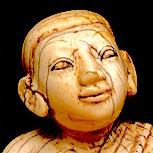
Upagupta ရှင်ဥပဂုတ္တ (Shin Upagutta)
c. 3rd century BCE
4th Zen Patriarch, disciple of the Buddha’s close attendant Ananda’s regent, the spiritual teacher of Ashoka who spread Buddhism from a very small community into the greater world; Upagupta is still remembered and venerated in many South East Asian countries, Bangladesh, and with a special, high status in Burma that celebrates a major festival in his honor each year. Immortalized in a poem by Rabindranath Tagore, he refuses the advances of his city’s most famous enchantress when she’s young and beautiful only to nurse and stay with her when she’s suffering from a disfiguring disease.
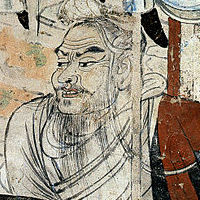
Vimalkirti विमल
600 – 500 BCE
Close disciple of the Buddha who extended his teachings to common people
One of the Buddha’s closest and most important disciples, Vimalkirti became known for his wisdom and ability to teach Dharma to not only monastics but to everyday, common people. Like the Buddha and born into a wealthy family, he also renounced his position and possessions but his teaching and influence extended back to people not willing to renounce so much. This helped shape the Buddhist traditions into welcoming everyone. Although sometimes considered legendary, teachings attributed to him on emptiness became a central theme in Buddhist philosophy and most traditions consider him an historical figure and a founding influence on the Chan and Zen traditions.
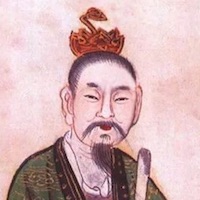
Wenzi 文子 (Wénzǐ)
(fl. 5th century BCE)
"Authentic Presence of Pervading Mystery.”
Close disciple of Lao Tzu, nobleman from the Jin state, astronomer, teacher of the Yueh state prime minister, inspiration for the famous commentary of the same name written by his disciples; Wenzi’s life is clouded in myth, magic, and superstition. The text itself - regarded the 4th main Taoist scripture after the Tao Te Ching itself, the Zhuang Zi (Chuang Tzu), and Lie Zi (Lieh Tzu) - was considered a forgery written much later until an archeological team discovered a copy written on bamboo strips in a a tomb buried in 55 BCE. In 742 CE, Tang emperor Xuanzong gave this book the name, "Authentic Presence of Pervading Mystery.”
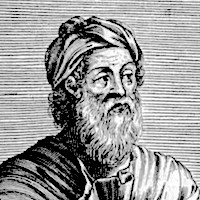
Xenophanes Ξενοφάνης ὁ Κολοφώνιος (Xenophanes of Colophon)
570 – 475 BCE
Nomad, belief-system critic, poet, and highly influential but greatly under-appreciated pre-Socratic Greek philosopher; Xenophanes traveled for 67 years teaching, "making enemies," and challenging traditional Greek values like athleticism and belief in anthropomorphic gods. Plato used many of his ideas in the Republic III, Aristotle deprecated him but then advanced many of his ideas when he wrote Metaphysics. Xenophanes realized early how stuck to tradition most contemporaries become and consciously wrote for future generations he believed (correctly) would be more open to his ideas.
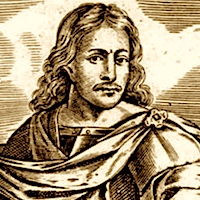
Xenophon of Athens Ξενοφῶν
(430–354 BCE)
General, Socratic biographer, philosopher
Much like Plato, Xenophon was a student and biographer of Socrates. These two biographical descriptions (the only surviving examples of contemporary Socratic dialogue) differ widely however sparking an historical debate about what Socrates was really like. Bertrand Russel wrote that Xenophon “was not very liberally endowed with brains and on the whole conventional” (Others though like Montaigne, Rousseau, and Benjamin Franklin praised his intellect.) but also “the excellence of Plato as a writer of fiction throws doubt on him as a historian” so obscure mystery must remain surrounding Socrates. As a Greek general, historian, mercenary, as well as philosopher; Xenophon’s approach and descriptions reveal the more pragmatic and political view.
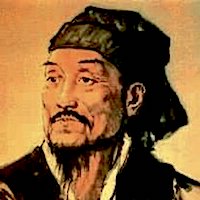
Xun Kuang 荀況 (Xún Kuàng, Xúnzǐ)
310 – 235 BCE
Early Confucian philosopher of "basic badness"
An early Confucian philosopher, Xunzi had a big influence on the translation of Confucian ideas into governmental policy until Mencius assumed that role. He was one of the first to talk about Lao Tzu and used Taoist descriptions while arguing against the Taoist interpretations. Unlike most Chinese philosophers who began with a foundation of basic goodness, Xunzi—much like the Judeo-Christian traditions—taught that humans were basically evil, that strict ethical rules were necessary to prevent their natural tendencies, and that only an elite few could accomplish much. He rejected the idea of positive change in favor of a conservative return to the past's wisdom; but—perhaps in contradiction—recommended promotions based on merit instead of hereditary titles.
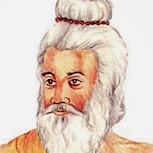
Yājñavalkya
fl. c. 7th century BCE
One of the earliest non-dual philosophers
Revered sage, major figure in the Upanishads, and one of the first philosophers in recorded history; no one could rival Yajnavalkya in debate. Called the greatest theologian of his time, and with his dialogues recorded in the Upanishads, he taught the great philosopher-king of Videha (modern day Nepal), Janaka who created an intellectual center for great sages that became the most important cultural and political center of South Asia. He described an “Absolute Self” and furthered a non-dual school of Hinduism that continues today. In later life he retired in a forest to become a wandering ascetic personifying a tradition popular through the centuries of Indian history.
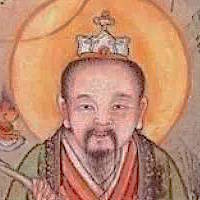
Yin Xi 關尹子
536 – 596 BCE
Lao Tzu’s first disciple and Taoist patriarch
Yin Xi, Yin Hsi, Guan Yin Zi 關尹子 (fl. 6th century BCE)
Astronomer from a royal observatory said to have seen purple clouds drifting in from the east and taken them as a symbol that a great sage would soon be coming through that area, Yin Xi went to the one place everyone traveling to that area would have to pass through, the Hanku Pass, a strategic and narrow ten-mile canyon between the Qin and Zhou states. Recognizing Lao Tzu, he asked to become his disciple, became his first student, and requested the teachings that became the Tao Te Ching. Known as the “Master at the Beginning of the Scripture,” Lao Tzu’s first disciple, Taoist patriarch and founder of the Yin Xi Lineage; he became the prototype “Taoist” and inspiration for the development of religious Taoism.

Zarathushtra زرتشت (Zoroaster)
628 – 551 BCE
Said to have laughed out loud the day he was born and considered a true prophet by Islam, an important influence on Judaism, the Greek philosophers, and on philosophy in general, Zarathushtra founded Zoroastrianism, the official religion of Persia from 600 BCE until 650 CE when Islam took over. A shaman called inventor of astrology, he based his teachings on what we now call the Golden Rule, founded the Magi tradition and opposed the oppressive caste system of his time. Although against polytheism and emphasizing belief, his religion taught the meaningfulness of each small action increasing goodness or evil. From it we inherit common symbols like magic, heaven and hell, purgatory, Satan, the 3 Wise Men, angels, Christmas, and the Last Judgment.
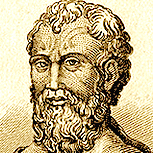
Zeno Ζήνων ὁ Κιτιεύς (of Citium)
334 – 262 BCE
Self-made wealthy merchant, shipwrecked and impoverished Phoenician, founder of Stoicism - a kind of reformation of Epicureanism that had corrupted from the pursuit of happiness to the pursuit of pleasure; Zeno emphasized virtue and goodness as essential to true happiness and peace of mind. An internationalist wanting to break down all national and racial barriers with no nations, classes, rich or poor, he defined vice as the rejection of reason making happiness impossible. Crediting Socrates, he defined the universe as god and acting on hope and fear, seeking pleasure or avoiding pain as the negative impulses causing suffering. His Stoic philosophy remained dominant for c. 800 years, influenced Seneca, Epictetus, and Marcus Aurelius. A major crater on the moon is named after him.
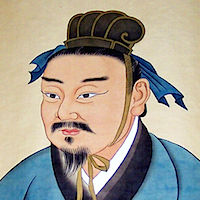
Zisi 子思 (Kong Ji or Tzu-Ssu)
481 – 402 BCE
Confucius' grandson and early influence on Neo-Confucianism
The only grandson of Confucius, writer of the influential Doctrine of the Mean, and teacher of Confucian thought to Mencius; Kong Ji evolved his grandfather’s insights into the difference between real and believed truth, the relativity of understanding, and the possibilities of learning lessons from nature and applying them to everything from politics to daily life. His writings were a deep influence on Zhu Xi and the Neo-Confucian movement becoming one of “The Four Books” that set the educational and political framework in China and throughout Asia for more than 700 years, from c. 1150 to 1905.
Chinese Eras
Xia Dynasty 夏 (2100 – 1600 BCE)
Shang Dynasty 殷代 (1600 – 1046 BCE)
Western Zhou 西周 (1046 – 771 BCE)
Eastern Zhou 東周 (770 – 256 BCE)
Spring and Autumn period 春秋时代 (770 – 476 BCE)
Warring States period 春秋时代 (476 – 221 BCE)
Qin Dynasty 秦朝 (221 – 206 BCE)
Three Kingdoms 三國時代 (220 – 280 CE)
Southern and Northern 南北朝 (420 – 589 CE)
Tang Dynasty 唐朝 (618 – 907 CE)
5 Dynasties 10 Kingdoms (907 – 960 CE)
5 Kingdom of Dali 大理国 (937 – 1253 CE)
Western Xia 西夏 (1038 – 1227 CE)
Southern Song (1127 – 1279 CE)
Comments (0)